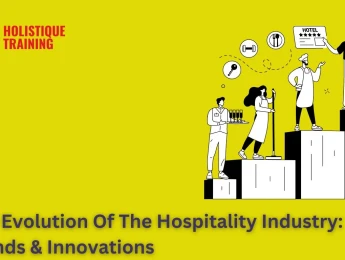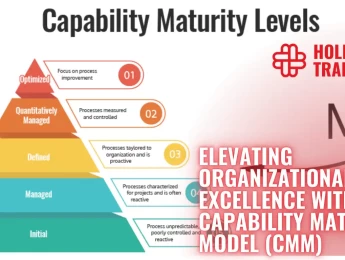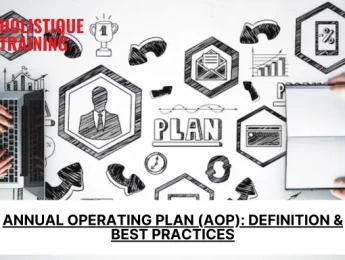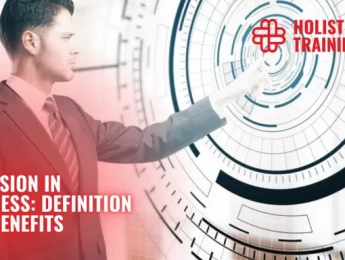- Table of Contents
- Introduction
- What is the Hospitality Industry?
- The Role of a Hospitality and Tourism Specialist
- Key Responsibilities
- Skills and Qualities
- Top Trends Shaping the Future of the Hospitality Industry
- Personalisation
- Increased Use of Technology
- Sustainable and Eco-Friendly Practices
- Increased Emphasis on Safety and Health
- Digital Nomads
- Bleisure
- Scenario Planning
- Investing in Employee Experiences
- How Will AI and ML Change the Hospitality Industry?
- Enhanced Customer Experience
- Operational Efficiency
- Data-Driven Decision Making
- Improved Marketing Strategies
- Enhanced Employee Training and Support
- Addressing Safety and Security
- Future Innovations and Developments
- The Challenges of the Hospitality Industry
- Labour Shortages
- Rising Operational Costs
- Adapting to Consumer Preferences
- Navigating Economic Uncertainty
- Embracing Technological Disruption
- Conclusion
Introduction
The hospitality industry has long been a dynamic sector, constantly evolving to meet the needs of travellers and guests worldwide. With the advent of new technologies and shifting consumer preferences, the future of this industry is set to undergo significant transformation. This blog post will explore the core definition of the hospitality industry, the key trends shaping its future, the impact of artificial intelligence (AI) and machine learning (ML), and the challenges that lie ahead. By understanding these elements, stakeholders can better navigate the complexities of this vibrant field.
What is the Hospitality Industry?
The hospitality industry encompasses a wide range of sectors that focus on providing services to guests, including accommodations, food and beverage, travel and tourism, and recreation. This industry is driven by the desire to create memorable experiences for visitors, whether they are on vacation, travelling for business, or simply enjoying a meal out.
Key components of the hospitality industry include hotels, restaurants, bars, cafes, cruise lines, event planning, and tourism services. Each segment enhances customer satisfaction, creates value, and drives economic growth. The hospitality industry significantly contributes to global economies, generating millions of jobs and supporting local communities.
With globalisation and technological advancements, the hospitality industry has evolved to accommodate a diverse clientele with varying preferences and expectations. Understanding the emerging trends is essential for industry professionals and businesses looking to thrive in this competitive landscape.
The Role of a Hospitality and Tourism Specialist
As the hospitality and tourism industry continues to evolve in response to emerging trends and technologies, the role of hospitality and tourism specialists has become increasingly vital. Many professionals entering this field pursue a Bachelors in Hospitality Management, which equips them with foundational knowledge in hotel operations, tourism, event management, and customer service, preparing them to excel in various specialist roles.
Key Responsibilities
1. Guest Experience Management
Hospitality and tourism specialists are tasked with ensuring exceptional guest experiences. They work to understand customer needs, preferences, and expectations, enabling them to tailor services and offerings accordingly. This involves everything from personalised welcome messages to anticipating guest needs during their stay. By actively engaging with customers and soliciting feedback, specialists can refine services to enhance overall satisfaction.
2. Event Planning and Coordination
Many specialists focus on event planning and coordination within the hospitality sector. They are responsible for organising corporate events, weddings, and conferences, ensuring that every detail aligns with client expectations. This involves venue selection, catering arrangements, audio-visual setups, and logistics management. A successful event can significantly impact a hotel's reputation, making the role of a specialist in this area critical.
3. Marketing and Promotion
Hospitality and tourism specialists also play a crucial role in marketing and promoting their organisations. They leverage digital marketing strategies, social media campaigns, and customer engagement tactics to attract new guests and retain existing ones. This includes understanding target demographics, crafting compelling messages, and utilising analytics to measure campaign effectiveness. By staying ahead of industry trends, specialists can position their brands effectively within a competitive market.
4. Research and Analysis
Data-driven decision-making is fundamental in today’s hospitality landscape. Specialists conduct market research and analyse trends to provide insights that inform strategic planning. They evaluate competitor offerings, identify emerging trends, and assess customer feedback to shape service delivery and product offerings. This research is essential for staying competitive and responsive to changes in consumer behaviour.
5. Training and Development
With the rapid evolution of technology and customer expectations, ongoing training and development of staff are paramount. Hospitality and tourism specialists develop training programs that equip employees with the necessary skills to provide exceptional service. This includes customer service training, technology usage, and health and safety protocols. By fostering a culture of continuous learning, specialists help ensure that staff members are well-prepared to meet guest needs.
Skills and Qualities
To succeed in this multifaceted role, hospitality and tourism specialists must possess a diverse skill set:
- Strong Communication Skills: Effective communication is crucial in building relationships with guests, clients, and colleagues. Specialists must be able to articulate ideas clearly and listen attentively to customer feedback.
- Attention to Detail: The hospitality industry is highly detail-oriented, where small oversights can impact the guest experience. Specialists must have a keen eye for detail to ensure all aspects of service delivery meet high standards.
- Problem-Solving Abilities: The ability to think on one’s feet and resolve issues quickly is essential in the fast-paced hospitality environment. Specialists must be resourceful and capable of finding effective solutions to challenges as they arise.
- Cultural Sensitivity: As the industry caters to a diverse clientele, cultural awareness and sensitivity are vital. Specialists must understand and respect different customs and preferences to create inclusive experiences for all guests.
- Tech-Savviness: Given the increasing reliance on technology in hospitality, specialists should be comfortable with various software systems, digital marketing tools, and AI applications. Staying updated on technological advancements will enhance their ability to leverage new tools effectively.
The role of a hospitality and tourism specialist is pivotal in shaping the future of the industry. By focusing on guest experience management, event coordination, marketing, research, and staff training, these professionals drive the success of hospitality organisations in an increasingly competitive market. With their diverse skill sets and commitment to excellence, hospitality and tourism specialists are essential to delivering exceptional experiences that keep guests returning time and again.
Top Trends Shaping the Future of the Hospitality Industry
The hospitality industry is experiencing a profound transformation driven by changing consumer expectations and technological advancements. Understanding these trends is essential for hospitality professionals and businesses aiming to stay competitive. Let’s delve deeper into the top trends shaping the future of the hospitality sector:
Personalisation
Personalisation has emerged as a cornerstone of exceptional customer service in the hospitality industry. Modern travellers desire unique experiences tailored to their specific needs and preferences. Increased data availability and advanced analytics influence this shift toward personalisation, allowing businesses to create highly tailored offerings.
For instance, hotels can utilise guest profiles that aggregate information from previous stays, such as preferred room types, favourite dining options, and special requests like extra pillows or a particular type of coffee. By leveraging this data, hospitality providers can deliver personalised welcome notes, suggest tailored activities, or even curate unique experiences that align with the guest’s interests, like booking a local culinary tour for a food enthusiast.
Moreover, personalisation extends to communication channels. Customers appreciate being recognised and addressed by name in email marketing campaigns, social media interactions, and during their stays. By creating personalised interactions, businesses foster a deeper emotional connection with guests, ultimately enhancing loyalty and encouraging repeat visits.
Increased Use of Technology
The hospitality industry increasingly embraces technology to enhance the guest experience and streamline operations. From mobile apps to smart room features, technology is pivoting in shaping how travellers interact with hospitality providers.
Mobile applications have become essential tools for guests, offering services such as mobile check-in/check-out, room service ordering, and access to local attractions. These apps give guests greater control over their experience, reducing wait times and increasing convenience.
Smart technology in hotel rooms is also gaining traction. Features like keyless entry, voice-activated controls, and personalised lighting enhance the guest experience by providing comfort and convenience. For instance, a guest can control the room’s temperature, lighting, and entertainment system through a voice assistant, creating a seamless and enjoyable atmosphere.
Furthermore, hospitality businesses are harnessing data analytics to optimise operations. Organisations can make data-driven decisions that enhance service quality and operational efficiency by analysing booking patterns, customer preferences, and feedback. This shift towards technology-driven strategies enables hotels and restaurants to stay ahead of the competition and meet the evolving demands of tech-savvy travellers.
Sustainable and Eco-Friendly Practices
Sustainability is no longer just a trend; it has become a fundamental expectation for modern travellers. As consumers grow increasingly aware of environmental issues, they actively seek out hospitality providers that demonstrate a commitment to sustainability. This has led to a significant shift toward eco-friendly practices in the industry.
Hotels and restaurants are implementing various initiatives to reduce their carbon footprint and minimise waste. For example, many establishments are adopting energy-efficient technologies, such as LED lighting, smart thermostats, and solar energy systems. Additionally, sourcing food locally and implementing farm-to-table practices supports local economies and reduces transportation emissions.
Moreover, hospitality providers are rethinking their waste management strategies. Many hotels have implemented recycling programs, composting food waste, and reducing single-use plastics. By offering guests the option to forgo daily housekeeping in exchange for discounts or rewards, hotels encourage responsible practices and contribute to sustainability efforts.
Promoting these eco-friendly initiatives attracts environmentally conscious travellers and enhances a brand’s reputation. Many guests appreciate transparency regarding sustainability efforts, and organisations communicating their commitment to environmental responsibility often enjoy increased loyalty and customer satisfaction.
Increased Emphasis on Safety and Health
The COVID-19 pandemic has irrevocably changed the hospitality industry, placing health and safety at the forefront of guest considerations. Travellers now prioritise hygiene and cleanliness more than ever before, leading hospitality businesses to implement rigorous safety protocols.
Establishments are adopting enhanced cleaning protocols, utilising hospital-grade disinfectants, and increasing the frequency of cleaning high-touch surfaces. Many hotels have also invested in advanced cleaning technologies, such as electrostatic sprayers and UV disinfection systems, to ensure a higher level of cleanliness.
In addition to cleaning measures, transparency is crucial. Hospitality providers now share their health and safety protocols through various channels, including websites and social media platforms. Clear communication regarding safety measures fosters trust and reassures guests about their well-being.
Furthermore, usinghospitality technology to facilitate contactless experiences has become a standard practice. Mobile check-in, digital room keys, and contactless payments minimise physical interactions and enhance the safety of guests and staff alike. This shift toward safety and hygiene will likely remain a priority, even after the pandemic, as guests continue to value health-conscious practices in their travel experiences.
Digital Nomads
The rise of remote work has given birth to a new demographic of travellers known as digital nomads—individuals who work remotely while travelling. This trend has significant implications for the hospitality industry, as digital nomads seek accommodations that provide both comfort and the necessary tools for productive work.
Hotels and short-term rental properties are increasingly catering to this market by offering amenities such as high-speed Wi-Fi, comfortable workspaces, and flexible booking options. Many establishments have recognised the value of creating “workation” packages, which include access to co-working spaces, wellness programs, and local experiences that enhance work-life balance.
Additionally, hospitality providers can foster community among digital nomads by creating networking events or social gatherings that connect remote workers. These opportunities for interaction can enrich the guest experience and create a sense of belonging among travellers who share similar lifestyles.
As this trend continues to grow, hospitality businesses that adapt their offerings to meet the needs of digital nomads will position themselves for success in an evolving market.
Bleisure
The concept of bleisure travel—a combination of business and leisure—is gaining popularity as more business travellers seek to maximise their trips by incorporating leisure activities. This trend presents significant opportunities for hospitality providers to enhance their offerings and cater to this evolving demographic.
To effectively cater to bleisure travellers, hotels can offer packages that combine business amenities with leisure experiences. For example, a hotel could provide discounted rates for extended stays, allowing business travellers to enjoy the destination after their meetings. Partnerships with local attractions, restaurants, and tour operators can create tailored experiences encouraging exploration.
Furthermore, hotels can develop meeting spaces that double as social hubs, providing an environment conducive to both work and relaxation. By creating spaces that foster collaboration and community, hospitality providers can attract bleisure travellers and enhance their overall experience.
Scenario Planning
The hospitality industry is subject to various external factors, including economic fluctuations, natural disasters, and global events. Businesses increasingly adopt scenario planning as a strategic tool to navigate these uncertainties.
Scenario planning involves analysing potential future scenarios and their impact on the industry. By anticipating various challenges and opportunities, hospitality organisations can develop proactive strategies to remain resilient in the face of change.
For example, businesses can assess potential shifts in consumer behaviour, technological advancements, and regulatory changes to develop adaptable plans. This foresight enables organisations to pivot quickly, whether it’s adapting marketing strategies, adjusting operational procedures, or reallocating resources in response to changing market conditions.
By embracing scenario planning, hospitality providers can enhance their ability to respond effectively to unexpected challenges and position themselves for long-term success.
Investing in Employee Experiences
The success of the hospitality industry hinges on the experiences of its employees. Recognising that a motivated and engaged workforce directly impacts guest satisfaction, hospitality providers increasingly focus on employee experiences.
Investing in training and professional development enhances employee skills and demonstrates a commitment to their growth and well-being. Organisations that prioritise employee engagement through regular feedback, recognition programs, and opportunities for advancement cultivate a positive workplace culture.
Furthermore, creating a supportive environment fosters employee loyalty and reduces turnover rates. When employees feel valued and empowered, they are more likely to deliver exceptional service, ultimately enhancing the guest experience.
Hospitality businesses that invest in employee experiences position themselves for success in a competitive market. By fostering a culture of appreciation and development, organisations can create a motivated workforce contributing to the business's overall success.
The hospitality industry is undergoing a significant transformation as it adapts to changing consumer preferences and technological advancements. By embracing trends such as personalisation, technology integration, sustainability, and health-focused practices, hospitality providers can create memorable experiences that resonate with today’s travellers.
Furthermore, understanding the implications of remote work and the rise of bleisure travel allows businesses to tailor their offerings to meet evolving demands. Through proactive scenario planning and a commitment to employee experiences, hospitality organisations can navigate challenges and position themselves for sustainable growth in the future.
By staying attuned to these trends and continuously innovating, the hospitality industry can thrive in an ever-changing landscape, ensuring it remains a vital and dynamic sector in the global economy.
How Will AI and ML Change the Hospitality Industry?
According to aGlobalData report on AI, the market is expected to achieve a revenue of $383.3 billion by 2030. In the hospitality sector, the adoption of generative AI is gaining significant attention among industry players. This trend is underscored by findings from theSITA report, which indicates that 97% of airlines are currently developing initiatives to harness this technology. AI and machine learning (ML) are set to revolutionise the hospitality industry by enhancing operational efficiency, improving customer service, and enabling data-driven decision-making. Here are some ways AI and ML will impact the sector:
Enhanced Customer Experience
One of the most significant impacts of AI and ML in the hospitality sector is the enhancement of the customer experience. These technologies enable businesses to create highly personalised interactions that cater to individual guest preferences.
Personalised Recommendations: By analysing data from previous stays, social media interactions, and customer feedback, AI systems can generate personalised guest recommendations. For example, hotels can suggest activities, dining options, or room upgrades tailored to a guest’s interests and past behaviours. Such tailored experiences increase guest satisfaction and drive additional revenue for the business.
Chatbots and Virtual Assistants: AI-powered chatbots and virtual assistants are becoming commonplace in hotels and restaurants. These tools can handle a range of inquiries, from booking reservations to answering frequently asked questions about amenities or local attractions. By providing instant responses 24/7, chatbots enhance customer service, reduce wait times, and allow staff to focus on more complex guest needs.
Operational Efficiency
AI and ML are transforming the operational side of the hospitality industry, making processes more efficient and cost-effective. These technologies help streamline various functions, reducing the burden on staff and optimising resource allocation.
Predictive Analytics: AI-driven predictive analytics allows hotels and restaurants to forecast demand accurately. By analysing historical booking data, seasonal trends, and local events, businesses can optimise pricing strategies, manage inventory, and ensure they are adequately staffed during peak times. This level of foresight helps maximise revenue while minimising operational costs.
Automated Check-in and Check-out: Self-service kiosks and mobile check-in systems powered by AI streamline the check-in and check-out processes. Guests can bypass long lines, allowing for a smoother arrival and departure experience. Moreover, these systems can automatically update room availability in real-time, ensuring accurate data for staff and guests alike.
Aspect | Then | Now |
Customer Interaction | Face-to-face communication was standard. | Digital communication enhances engagement. |
Booking Process | Primarily done through travel agents. | Online platforms enable instant bookings. |
Marketing Strategies | Relied on print and broadcast media. | Digital marketing targets specific audiences. |
Service Personalisation | Limited to basic preferences known. | Advanced data analysis personalises experiences. |
Sustainability Practices | Minimal focus on eco-friendly options. | Strong emphasis on sustainable practices today. |
Technology Usage | Basic technology for operations only. | Advanced tech streamlines and enhances services. |
Table: The Hospitality Industry: Then vs. Now
Data-Driven Decision Making
Integrating AI and ML facilitates data-driven decision-making, empowering hospitality providers to make informed choices that enhance business performance.
Customer Insights: AI algorithms can analyse vast amounts of data from various sources, providing insights into customer preferences and behaviour patterns. By understanding what drives customer satisfaction, businesses can tailor their offerings and marketing strategies to meet guest needs better. This data-driven approach can lead to improved guest retention rates and higher revenues. According toHospitality Net, by 2026, almost two-thirds of hospitality businesses are projected to integrate location-based awareness into their unified customer data strategies. This strategy aims to increase customer loyalty and lifetime value, potentially enhancing the effectiveness of offers and marketing by 35%.
Dynamic Pricing Models: Machine learning algorithms enable hotels and airlines to implement dynamic pricing strategies based on real-time demand fluctuations, competitor pricing, and market conditions. By adjusting rates dynamically, businesses can optimise occupancy rates and maximise revenue per available room (RevPAR) while still offering competitive prices to guests.
Improved Marketing Strategies
AI and ML are also reshapingmarketing strategies within the hospitality industry, enabling businesses to target their audiences more effectively and efficiently.
Targeted Advertising: AI-powered tools can analyse consumer behaviour and demographics to create highly targeted marketing campaigns. For instance, hospitality businesses can segment their audiences based on past behaviours, preferences, and travel habits, allowing for tailored advertising that resonates with potential guests. This increased relevance often results in higher conversion rates and better return on investment (ROI) for marketing efforts.
Social Media Monitoring: AI tools can monitor social media platforms for customer sentiment and feedback. Businesses can identify trends and address issues by analysing user-generated content and reviews in real-time. This proactive approach to reputation management enables hospitality providers to respond quickly to guest concerns and capitalise on positive feedback.
Enhanced Employee Training and Support
AI and ML are transforming customer-facing aspects of hospitality and enhancing employee training and support systems.
Training Simulations: AI-driven simulations can provide staff with realistic training scenarios, allowing them to practise handling various situations in a controlled environment. For instance, hotel employees can engage in role-playing exercises with virtual guests, gaining valuable experience in customer service without the pressure of real-life situations. This training can improve employee confidence and competence, leading to better service delivery.
Performance Analytics: Machine learning algorithms can analyse employee performance data to identify strengths and areas for improvement. By providing personalised feedback and training recommendations, businesses can foster a culture of continuous learning and development. Empowering employees with the tools and knowledge to excel enhances job satisfaction and ultimately improves guest experiences.
Addressing Safety and Security
AI technologies are crucial in enhancing safety and security within the hospitality sector, ensuring a secure environment for guests and staff.
Facial Recognition and Surveillance: AI-powered facial recognition technology can enhance security measures in hotels and resorts. By identifying potential threats or unauthorised individuals, businesses can take proactive measures to ensure the safety of their guests. Additionally, AI systems can monitor surveillance footage in real-time, alerting staff to suspicious behaviour and enhancing overall security protocols.
Health Monitoring and Safety Protocols: Following the COVID-19 pandemic, health monitoring has become a top priority for the hospitality industry. AI solutions can assist in contactless temperature checks and monitor adherence to health protocols, such as mask-wearing in public spaces. These measures help reassure guests about their safety while staying at a property.
Future Innovations and Developments
The impact of AI and ML on the hospitality industry is still evolving, with ongoing innovations set to transform the sector further.
Robotics and Automation: The use of robotics in hospitality is gaining traction, from robotic waitstaff to automated room service delivery. These innovations enhance operational efficiency and create unique experiences for guests. For example, robotic concierges can assist guests with check-in, provide information about the property, and even deliver luggage to rooms.
Voice-Activated Services: As smart home technology becomes more prevalent, hotels integrate voice-activated devices into their rooms. Guests can control lighting, temperature, and entertainment options using voice commands, creating a seamless and enjoyable experience. This level of convenience aligns with the growing demand for personalised and tech-savvy accommodations.
AI and ML fundamentally reshape the hospitality industry, paving the way for enhanced customer experiences, operational efficiency, and data-driven decision-making. As these technologies continue to evolve, they will empower hospitality providers to meet the changing demands of modern travellers and create memorable experiences that keep guests coming back.
By embracing AI and ML, the hospitality industry can improve its service delivery and thrive in an increasingly competitive landscape. The future of hospitality is bright, driven by innovation and a commitment to excellence, ensuring that guests receive the highest level of service and satisfaction.
The Challenges of the Hospitality Industry
While the future of the hospitality industry appears promising, several challenges must be addressed to ensure sustainable growth and success. Here are some of the key challenges and potential solutions:
Labour Shortages
One of the most pressing challenges facing the hospitality industry is labour shortages. Many establishments struggle to find qualified staff, leading to increased workloads and diminished service quality.
To address this issue, businesses can invest in training and development programs, creating a pipeline of skilled workers. Additionally, offering competitive wages and benefits, along with a positive workplace culture, can attract and retain talent in a competitive job market.
Rising Operational Costs
The hospitality industry often grapples with rising operational costs, from labour to utilities and supplies. As businesses strive to maintain profitability, reducing costs without compromising quality is essential.
Embracing technology can significantly impact expense management. Automation and AI-driven solutions can streamline operations, increasing efficiency and cost savings. Furthermore, adopting sustainable practices can reduce waste and lower utility bills, contributing to long-term financial stability.
Adapting to Consumer Preferences
Consumer preferences continually evolve, and the hospitality industry must remain agile to adapt to these changes. Staying attuned to emerging trends and customer feedback is crucial for businesses looking to thrive.
Conducting regular market research and engaging with customers through surveys and social media can provide valuable insights into shifting preferences. By responding to these changes, hospitality providers can better align their offerings with customer expectations, ensuring continued satisfaction and loyalty.
Navigating Economic Uncertainty
The hospitality industry is often vulnerable to economic fluctuations, geopolitical tensions, and global events, such as pandemics. This uncertainty can impact travel patterns and consumer spending, posing significant business challenges.
Scenario planning and risk management strategies can help organisations navigate these uncertainties. By anticipating potential disruptions and developing contingency plans, businesses can better position themselves to withstand economic challenges and emerge stronger.
Embracing Technological Disruption
While technology presents numerous opportunities, it also challenges the hospitality industry. The rapid pace of technological advancement can be overwhelming, making it difficult for businesses to keep up.
To address this challenge, hospitality providers should prioritise continuous learning and innovation. Staying informed about emerging technologies and investing in staff training can ensure that businesses remain competitive in an increasingly digital landscape.
Conclusion
The future of the hospitality industry is filled with opportunities and challenges. As personalisation, technology, sustainability, and evolving consumer preferences shape the landscape, businesses must adapt and innovate to remain competitive. Integrating AI and ML will revolutionise operations and customer experiences, paving the way for a more efficient and personalised industry.
However, addressing challenges such as labour shortages, rising operational costs, and economic uncertainty will be essential for long-term success. By prioritising employee experiences, leveraging technology, and embracing sustainability, hospitality providers can create memorable experiences for their guests while positioning themselves for a thriving future.
Ultimately, the hospitality industry’s resilience and adaptability will determine its trajectory in the coming years, ensuring it remains a vibrant and essential part of the global economy. For those interested in diving deeper into this exciting field, we offer a variety of hospitality and tourism courses. Be sure to explore our "Entertainment, Hospitality & Sports" section on our website to find the perfect program for you!
























